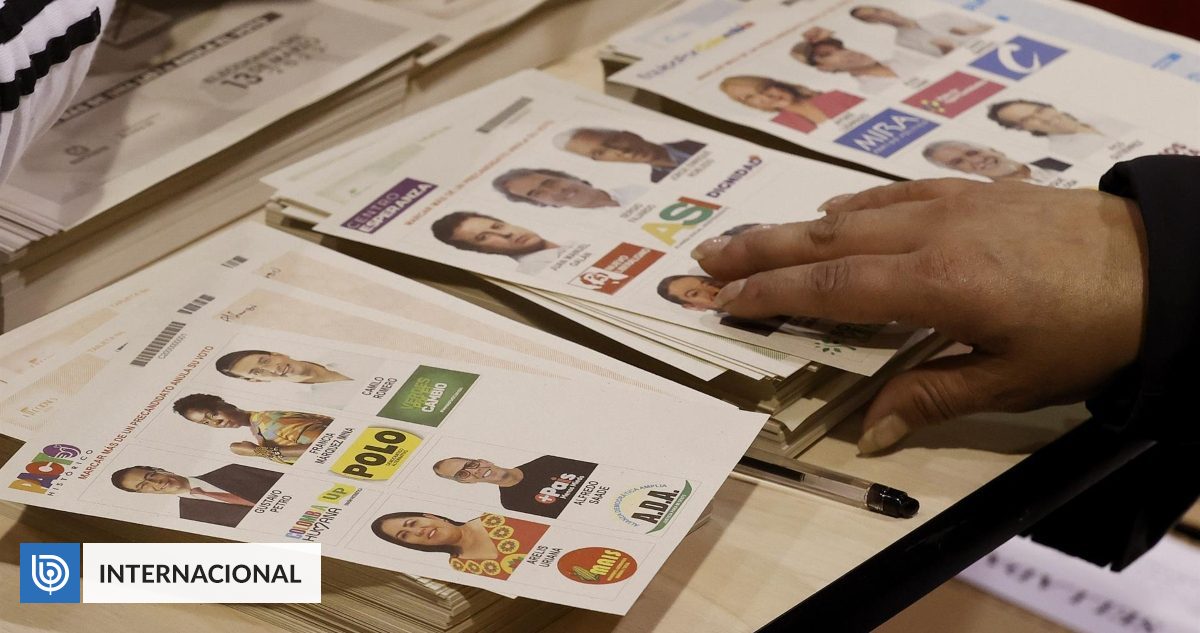RIO DE JANEIRO, BRAZIL – Colombians went to the polls Sunday to elect members of parliament and participate in political party primaries to determine presidential candidates for the May 29 elections. According to reports, there were errors on the website of the National Elections Office.
The elections for the new Congress and the primaries to determine the presidential candidates in Colombia, which will be held on May 29, began on Sunday.
The day was proceeding normally in the polling stations, except for failures on the website of the National Electoral Office.

If one compares the election campaign in Colombia with those in Chile and Peru, the country shows itself to be moderate, pragmatic, and in control.
While in Chile and Peru the sparks flew during the election campaign and in Peru the campaign continued after the elections with almost weekly attacks by the right-wing establishment on leftist President Pedro Castillo, the mood in Colombia is combative but much more disciplined. Derailments, also verbal ones, are few and far between.
And what the Brazilian presidential elections in October will bring us becomes more visible every week. The perfect Telenovela, just the way Brazilians are addicted to. Peak performance of dysfunctionality. Shrillness in its most extreme form, mixed with teary human stories, election love stories, and much much more. Count on the country’s undeniable creativity, with a high probability of an outcry over manipulated numbers, mass media induced hysteria, alleged dictatorship plots, and a Supreme Court that pulls the strings in the background, trying everything that the elections can only be won by the left.
It is not for nothing that Brazil is referred to by many South American neighbors as a “clumsy giant”.
But back to Colombia. Some 39 million people are eligible to vote for the two chambers of parliament (nearly 300 seats) and participate in primary or party elections.
The government has mobilized 241,461 military and police officers nationwide to guard the 14,228 polling stations.
Analysts say expectations are focused on determining presidential candidates rather than the next Congress and on abstention, which is traditionally around 50% in a country where voting is voluntary.
The left plans to nominate Gustavo Petro as its candidate, considered the favorite in all polls, while the right and center coalitions will choose their cards from a set of ten names.
“Win, win, that’s the expectation. It’s time to change Colombia,” Petro said as he arrived at the polls with his wife and two daughters. The leftist senator voted in Bogotá with the conviction that he will win the vote of the Historical Pact, the coalition for which he wants to be a presidential candidate.
After Sergio Fajardo of the Centro Esperanza coalition, who voted in Medellín, and Federico Gutiérrez, who also voted in the capital of Antioquia, Petro was the last of the favorites of the consultations to vote.
“I invite all of Colombia to go to the polls to protect democracy and freedoms,” said Gutiérrez, for whom “Colombia must not continue to be polarized.”
“There is still a long way to go; today, we will win the referendum. It is another fundamental step to win the presidency,” said the former mayor of Medellín and pre-candidate of the right-wing Team for Colombia.
The impoverishment and unemployment triggered by the pandemic, the increase in violence following the peace agreement with the now-disbanded FARC – which has also been the target of attacks following its disarmament – and insecurity in significant cities are some of the issues that worry citizens the most.
In addition, the repercussions of last year’s massive protests, which were harshly repressed and exposed a deep social malaise, still reverberate.
Comunes, the party founded by former guerrillas, faces its test. Although the peace agreement guarantees them ten seats until 2026, the former rebels are running in these elections to test their acceptability after their collapse in 2018, when they received 0.3 percent of the vote.
Although the army has deployed some 33,000 troops near the Venezuelan border and other places where armed groups operate to ensure security for the elections, the day was overshadowed by two terrorist attacks in the center and south of the country that killed two soldiers injured two others.
The general election is a barometer of sentiment for May 29, when voters will again go to the polls to decide on the successor to the unpopular Iván Duque, who will end his four-year term on Aug. 7 without the right to seek re-election.

